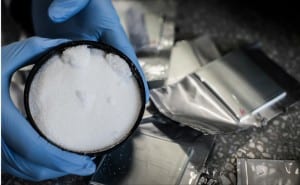LeydenJar Technologies, a Dutch spin-out of TNO, the Netherlands Organisation for applied scientific research, has developed a new anode which it believes will “drastically change the battery industry,” allowing lithium-ion batteries to be made from 100% silicon, boosting energy density by 70%.
With demand increasing across a variety of technology sectors for improved battery technology, recent innovation has been focused on transitioning away from the reliance on rare earth metals and carbon-based elements such as graphite. Conversely, increased battery performance and longevity is required as more and more sectors turn to batteries to participate in the global transition to cleaner energy.
Thus far, it has only been possible to produce anodes with a small amount of silicon due to the mechanical limitations of the material and the fact that anodes were primarily carbon based. However, as an anode material, silicon has ten times the capacity of carbon.
LeydenJar Technologies says it has now developed a new anode for lithium-ion batteries which, for the first time, can be made from 100% silicon. The company believes that its new 100% silicon anodes will boost battery energy density by up to 70% (1350Wh/L) and will result in 62% less CO2 emissions.
Moreover, the new 100% silicon anode is ready for production, and LeydenJar Technologies is preparing to “massively scale-up its production capacity” over the coming years.
“The significance of battery capacity is huge,” said LeydenJar Technologies’ founder and managing director, Christian Rood. “Electric driving, more intelligent smartphones, electric flying… everything and everyone is waiting for better batteries. Our solution is smart and easily incorporated. And there’s no additional cost. We cordially invite everyone to use and experience the advantages of LeydenJar’s silicon anodes.”
LeydenJar’s new silicon anode could have a dramatic impact on the pace and acceleration of technological innovation, considering that it will not increase production costs while remaining a “plug-in” solution to existing battery gigafactories.
By deriving their new silicon anode technology from solar cell production technology – specifically plasma-enhanced chemical vapour deposition, or PECVD – LeydenJar Technologies has been able to create anodes which are now cost- and energy-efficient.
The company tested their new anodes on pouch cells using commercially available battery materials, such as NMC 622 cathodes, and LeydenJar’s silicon anodes. The results showed an energy density of 1350Wh/L at start of battery life and demonstrated a cycle life of more than 100 cycles at a C/2 rate – results which have been independently verified by Norwegian energy registrar and consultancy DNV GL.
Further, LeydenJar’s CTO, Yiseop Ahn, believes that they will be able to “significantly improve” the cycle life performance of their silicon anodes.










